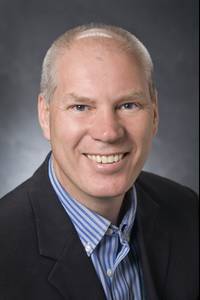
Dr. Mustard’s Spiritual Journey – For the first 15 years of my life I was very religious, yet I essentially misunderstood what it meant to be a Christian. I strived to live a moral life and often looked down on those who made foolish decisions.
This changed during the spring of my freshman year of high school when I went on a church canoe trip to Algonquin Provincial Park in Canada, one of the most beautiful areas in the world. The park is about 100 miles wide by 80 miles long where you can canoe for days, see no one, and hear nothing but soulful loons and the eerie howl of wolves.
Each night of that trip a leader spoke about how they made the decision to trust God personally by establishing a relationship with Jesus Christ. Being a Christian was not fundamentally about following rules or living a moral life, but about a relationship. People talked about how each person has sinned and failed to live up to God’s perfect standard (Romans 3:23) and that these failures bring consequences (Romans 6:23). In spite of my commitment to live a moral life there was nothing that I could do to merit the favor of a righteous and holy God who could not tolerate imperfection. Fortunately, God is also love, and He loved us so much that at great cost to Himself he devised a way for imperfect people to enter the presence of a perfect God. God sent his son Jesus to die on the cross to pay the penalty for my sin and to rise from the dead so that he could purchase a place for me in heaven. Consequently, only by establishing a relationship with Jesus could I know God (Ephesians 2:8-9). One night under an Algonquin sky that contained more stars than I imagined could exist, I made the most important decision of my life. I prayed, acknowledged to God that I was sinful and could do nothing to earn his favor, said I was sorry for disobeying Him, and asked Jesus to come into my life.
That decision changed my life in many profound ways. I immediately changed the way I viewed others. I became more humble and loving because I was neither more valuable nor more important than anyone else. Our value as humans rests in the value that God places on us, not in what we accomplish. This is incredibly freeing for those who too often equate worth with achievement. God also brought me a strong sense of peace. I received a Ph.D. and am now a professor. There is an exciting vitality in academia, but many people in academia are not content and are extremely dissatisfied. Students are often distraught about their grades and professors are subsumed with their own research, writing, and reputation. Success and failure are measured in tenths of a grade point and number of citations. Yet God promises that for those who trust Him the peace of God that passes all understanding shall guard your hearts and minds in Christ Jesus (Philippians 4:6-7).
